Discover 7 hidden attractions, cool sights, and unusual things to do in Concord (United States). Don't miss out on these must-see attractions: Cabarrus County Courthouse, Old Courthouse Theatre, and Odell-Locke-Randolph Cotton Mill. Also, be sure to include Cabarrus County Public Library in your itinerary.
Below, you can find the list of the most amazing places you should visit in Concord (North Carolina).
Table of Contents
Cabarrus County Courthouse
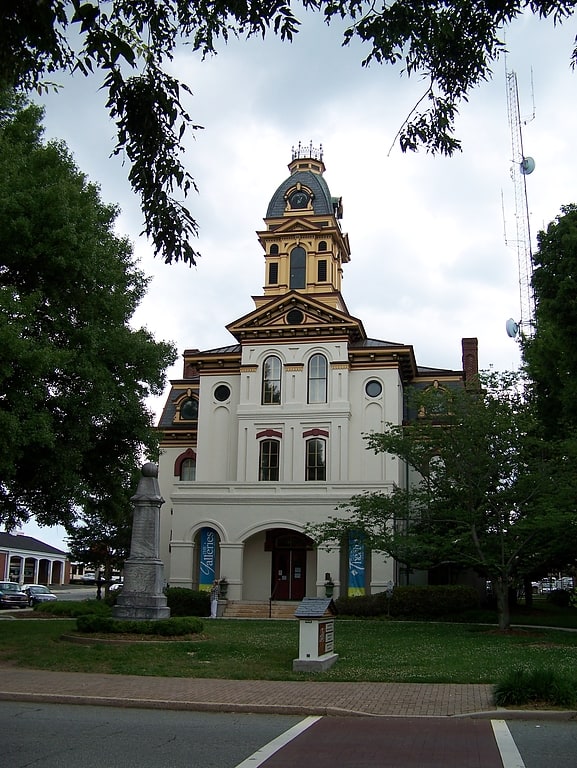
Courthouse. The historic Cabarrus County Courthouse in Concord, North Carolina was completed in 1876, replacing one that was destroyed by fire just the previous year. It was designed by architect G.S.H. Appleget. It includes Second Empire, Italianate, Classical Revival, and other architecture. It was listed on the National Register of Historic Places in 1974. In 1975, a new courthouse was built; the historic courthouse is now the home of the Cabarrus County Veterans Museum and the Cabarrus Arts Council. It is located in the South Union Street Courthouse and Commercial Historic District.
Cabarrus County has constructed four courthouses since the creation of the county in 1792. The records show that the first court held for the county of Cabarrus was at the house of Robert Russell located on the Salisbury Road on the third Monday of January, 1793. In 1795 commissioners were named to build the first courthouse; it was very small, only thirty feet square, poorly lit and ventilated and inadequately heated. It was built at the center of the square which was the intersection of Union and Corban Streets; this structure was used for thirty years until a new courthouse was constructed in 1826.[1]
Address: 65 Union St S, 28025-5013 Concord (Center City Concord)
Old Courthouse Theatre
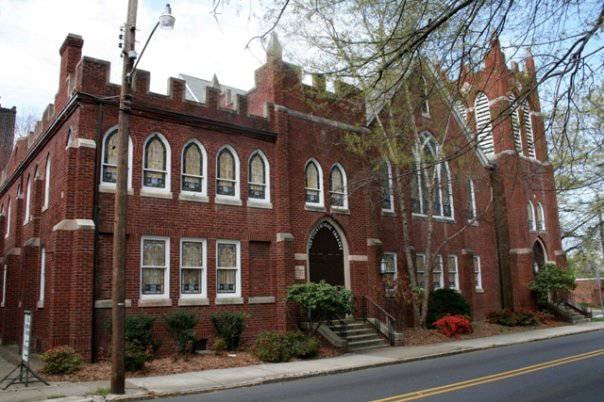
Concerts and shows, Theater
Address: 49 Spring St NW, 28025-4707 Concord (Center City Concord)
Odell-Locke-Randolph Cotton Mill
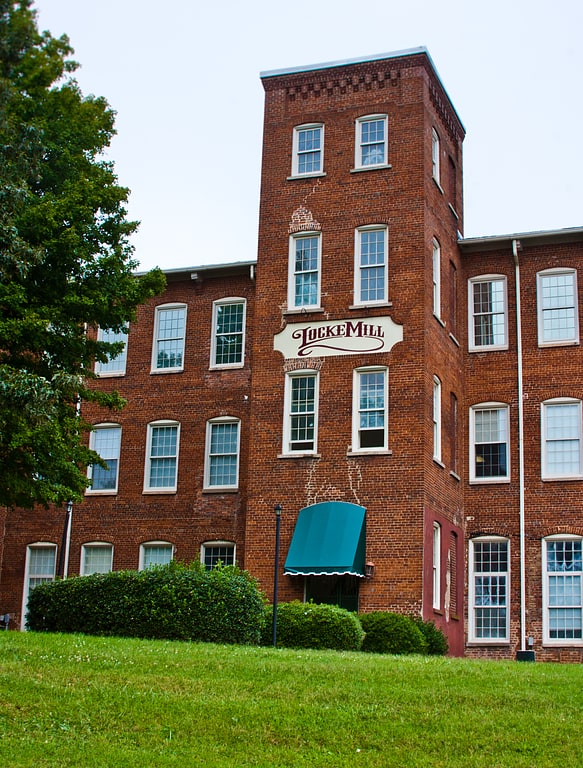
Building in Concord, North Carolina. The Odell-Locke-Randolph Cotton Mill is an historic building in the city of Concord, Cabarrus County, North Carolina. The original mill was constructed in 1839, as the McDonald Cotton Mills, north of the town of Concord in what is now the Locke Mill Plaza. The building was placed on the National Register of Historic Places listings in Cabarrus County, North Carolina in 1983.[2]
Cabarrus County Public Library
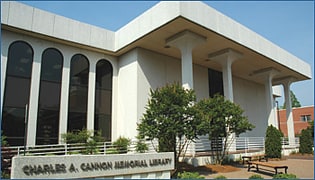
Public library. The Cabarrus County Public Library is a department of the Cabarrus County Government in North Carolina and serves a population of nearly 200,000 individuals.[3]
Coleman-Franklin-Cannon Mill
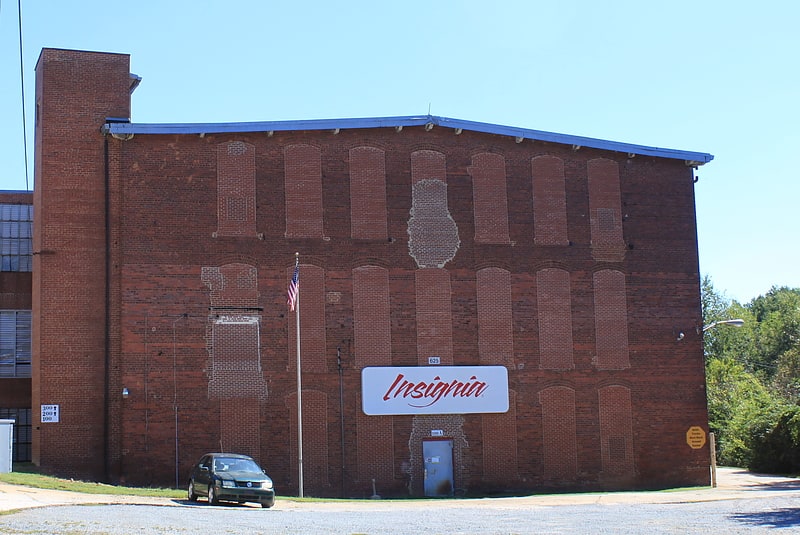
The Coleman-Franklin-Cannon Mill is a historic industrial complex at 625 Main Street SW in Concord, North Carolina. The recognized complex consists of ten buildings on 6.6 acres, about 2 miles west of downtown Concord. Another 4.4 acres are not included. The oldest portion of the mill, now its eastern section, is a brick two-story structure 14 bays long and 9 deep. The historic site also includes some worker housing.
The mill was built in 1898 by the Coleman Manufacturing Company, owned by Warren Clay Coleman, an African-American businessman of Concord, with a nine-man board made up of seven other African-American partners and one white. He needed more investment when nationwide subscriptions to purchase stock fell short. Washington Duke, a white tobacco magnate from Durham, contributed $1000, and made two $10,000 loans, which aided the company in constructing the mill and beginning operations.
Coleman hired white contractors and African-American crews. Builder Adolphus Henry Propst and brick maker and mason Rufus A. Brown led these crews in the construction. At one point Coleman paid the workers in stock in the company, but they demanded cash to finish the project.
Coleman announced that he would hire only African-American workers, and sparked a national discussion. The New York Times suggested that he might open the door for the hiring of more African Americans in the textile industry, where mill workers were generally restricted to whites. Some people worried that this would depress wages for whites, as blacks were paid less. Others were more worried about potential child labor laws under discussion.
Coleman was under-capitalized and struggled financially in an economic depression, at a time when all mill owners faced rising prices of cotton. Coleman's death in 1904 further weakened his company.
Benjamin Duke initially bought the mill because of outstanding debt. Later it was sold and used by other textile companies. Franklin Cotton Mills made changes and additions in 1912 that doubled it in size, adding on to the west side and removing the west 1898 wall to make interior passage unimpeded. Other alterations and additions were made through the 1960s, sometimes for structural reasons.
In the late 20th century, the mill was owned by Fieldcrest-Cannon, the last textile company to own it. During this period, major textile companies moved their jobs offshore to get cheaper labor costs, and the textile industry in the South virtually disappeared. In the 21st century the mill was sold; it has been adapted as a production facility for moonshine.
The property was listed on the National Register of Historic Places in 2015.[4]
South Union Street Historic District
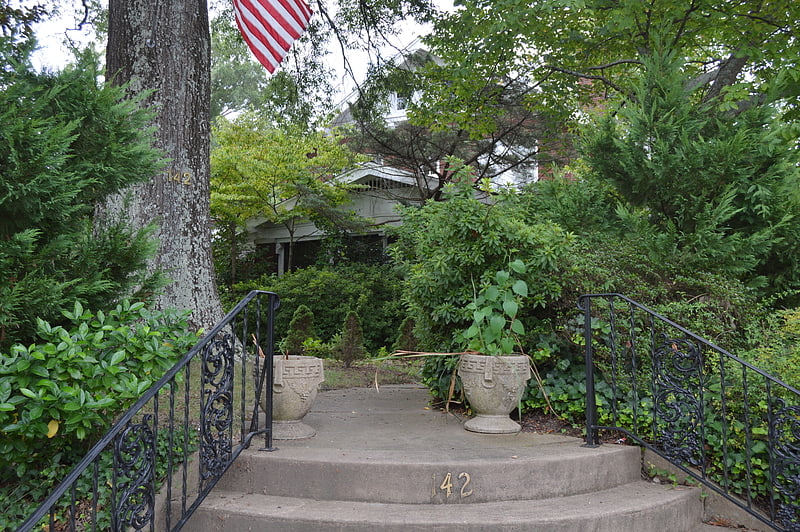
South Union Street Historic District is a national historic district located at Concord, Cabarrus County, North Carolina. The district encompasses 69 contributing buildings in a predominantly residential section of Concord. The district developed after 1880 and includes notable examples of Late Victorian and Bungalow / American Craftsman style residences.
It was listed on the National Register of Historic Places in 1986.[5]
North Union Street Historic District
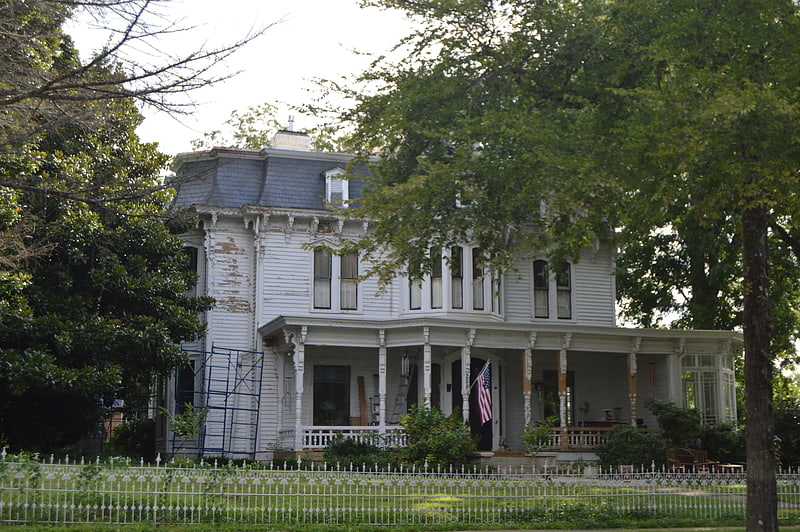
North Union Street Historic District is a national historic district located at Concord, Cabarrus County, North Carolina. The district encompasses 150 contributing buildings in a predominantly residential section of Concord. The area developed after 1870 and includes notable examples of Greek Revival and Late Victorian style architecture. Located in the district are the First Presbyterian Church, the Associate Reformed Presbyterian Church, Forest Hill Methodist Church, the First Baptist Church, the All Saints Episcopal Church, and the First United Presbyterian Church.
It was listed on the National Register of Historic Places in 1986.[6]